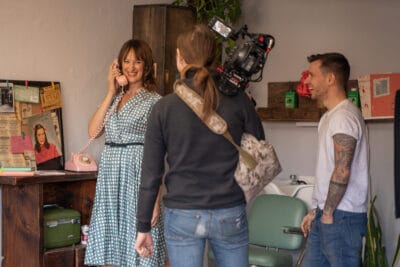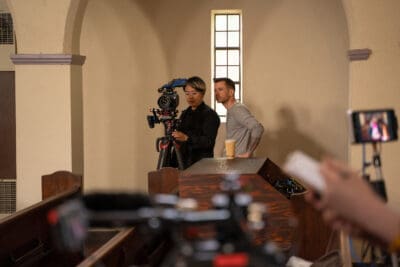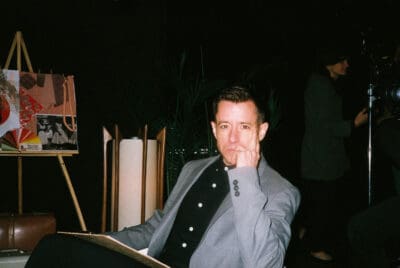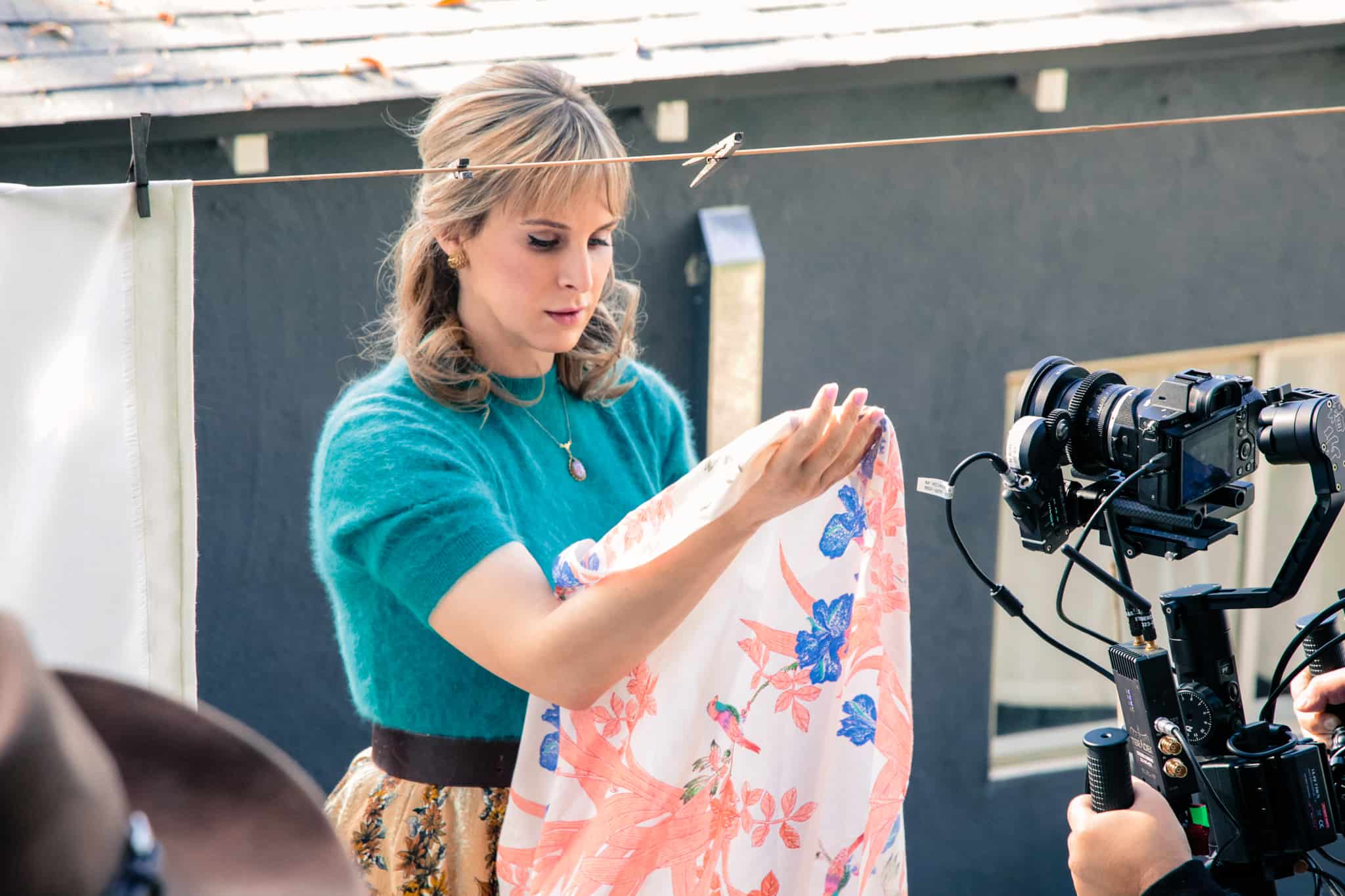My transition happened in a vacuum. I was alone and lonely and I felt like I was inventing something for the first time. The first trans woman to wake up that morning, the first trans woman to cut herself shaving, the first trans woman to convince a doctor to prescribe hormones to her. Over the years since I first emerged, I have been shaped not only by my experience, but my understanding of the experiences of every trans woman that has had a first before me. I was not the first trans woman to achieve any of my early successes, but they felt triumphant all the same.
When I spoke with my doctor, I knew what he was expecting from me: we discussed my sexuality and the feelings of the people in my immediate orbit before we discussed how being trans made me feel. He asked me about my wardrobe, and how I would present. He wanted me to answer the right way so he could feel comfortable giving me a script for medications I had read so much about I knew my own dosage better than he did. I was not the first trans woman to do this either.
In Framing Agnes, the new experimental documentary from Canadian filmmaker Chase Joynt, we witness the titular Agnes, as portrayed by Zackary Drucker, as she engages in a tête-à-tête with Harold Garfinkle, a UCLA researcher in the 1960s. Through Agnes, we see a snapshot of the history of trans people as they exist in contrast to the ever debasing enquiry of the medical research set.
Framing Agnes started as a short film before being expanded to the full-length documentary, now rounded out with additional cast members in trans icons like Jen Richards, Angelica Ross and Stephen Ira and bringing in trans historian Morgan M Page to help bring new depth to the script. The expanded repertoire digs deeper into the archives from which the Agnes story itself originates and tells a story of trans people in North America in the early days of our existence as public curiosities.

Framing Agnes premiered at the 2022 Sundance Festival to great success, Joynt received both the Audience Award and the Innovator Prize in the NEXT program for the feature. Now premiering here at home, the film is a featured documentary at this year’s Hot Docs festival. Before its premiere, we spoke with Joynt and Page over Zoom about the process of making the film and the unique limitations of recounting trans history.
Niko Stratis: Can you talk a little bit about the journey from taking this film from the short that it originated as, to the full length feature that it is now?
Chase Joynt: I really consider the short to be an extraordinary experimental test case in method, which is to say, is it possible to do all these things simultaneously? And we did. So with a very limited budget, we shot the short on a couple of days in the same location, with our own credit cards, wearing our own clothing. It was a thrilling time to think about what’s possible with this kind of archival momentum and community collaborative spirit. And from there, we started building our team. We started applying for grants and trying to scaffold a project that could hold a lot more weight. And what I mean by that is a lot more production value, more talent, etc. And so Morgan [M Page] joined the feature film pursuits, we added Jen [Richards] and Stephen [Ira] to the cast. And we were able to really start again, but having learned a lot creatively from the process of making the short in the years prior.
Did you always think of it as a bigger project than a short?
CJ: I think that if you were to look at the short and look at the feature back to back, you’d recognize that while they’re using the same archival source material, they’re very different projects that are asking and answering very different questions. And so I think it’s significant that the short film is still trafficking in a kind of investment in personal narrative as the way in which we can produce empathy and connection to trans people historically and in the contemporary moment. And in the feature, there’s a refusal of that kind of narrative making in service of other political and institutional and structural issues and intentions. And I think that’s emblematic of the kind of cultural discourse and the time in which the films emerge. And I’m thrilled by the fact that they’re not, in fact, the same project. Because I think that it speaks to one of our core investments, which is that the film is an organic living object that doesn’t have a very clear beginning, middle and end and imagines itself to be a part of an ongoing conversation.

The film very much defies conventions, so to speak, as it’s playing with the form. Does that speak a little bit to the limitations of telling a limited history? I imagine you only have so much source material.
Morgan M Page: I think this is often one of the problems when working with historical archives, particularly marginalized people in general is that you have almost nothing to go on. And there’s several ways of dealing with that. But for this project, I think we’re really using the seeds of the archive to try to tell a much wider story. What is the use of history? And why do we have investments in thinking about historical subjects in this way? Like, what does it mean to us now that there was this one particular cohort of trans people in the late 1950s at UCLA?
CJ: And I think collectively, we want to depressurize the archive and not imagine that the archive is going to give us answers to all of our burning questions. It ties into the work that Morgan does with her podcast, one from the vaults, which is to say history offers us tools to think about socio-political circumstances, but we have to invest in other things like gossip and performance and other mechanisms of storytelling to not only shape the way in which we come to know trans history, but to also think about how we are going to move forward. I think we’re all hyper-aware of the ways in which trans narratives have been warped in the contemporary media moment and it means that we need to be very careful about the kinds of stories we tell.
I was thinking a lot about Morgan’s podcast. Did your work as a historian, cataloging and archiving so much trans history, inform the way that that cataloging and presenting this history changed as you were onboarded into the full length?
MMP: Absolutely, I mean, I think my realm as telling the dirt gossip and glamour from trans history was a big part of why Chase wanted to bring me into this project, because all of my work is really about trying to take history out of the archives and out of the hands of academics and bring it alive for trans people today, and for other people who are interested in finding out because history is only so useful as it is useful to conversations happening today. If there’s no use to it, if there’s nothing we can glean from it, then what’s the point of talking about it? So I think bringing that perspective in definitely had an effect on how we shaped the move from the short to the feature.
So much of the storytelling in the documentary is people telling half-truths and we [trans people] still have to tell half-truths, I lied to a doctor last year to get health care. How much of that is reflective of where we still are [as trans people]?
CJ: That’s exactly right. And I think that your recognition that half-truths are functioning in all kinds of capacities in the film is exciting to me, because while we want to pay attention to the specifics of this moment in time, where Agnes gets pulled out and made an example of for a very particular reason, we recognize that all of us are code-switching, and all of us are navigating truth as a way in which to thrive and survive these systems. And I think documentary is another mode of meaning-making, and another mode of truth-seeking that needs to be interrogated. So how can we both be thinking about the medical-industrial complex, and its impacts on trans and nonbinary people in histories at the same time thinking about the violence of documentary and the way in which we’ve come to be represented? And that in fact, we’ve all learned something about the stories we tell about ourselves through the media making of trans narratives?
MMP: And I would also really invite people who are watching the film to consider how much of what you’re seeing on screen is true and true to whom. We had big conversations about how much shaping of the archive we would do and whether or not we would even stay direct to the archive. So I think this is one of the really important features of the project is thinking about, whose truth are we talking about? What do we mean by true? Do we mean strictly factual? Do we mean what’s true to a person? Which person? Is it true to Harold Garfinkel, or is it true to Georgia? I really hope people think very critically about what they see in the film and come up with their own decisions about it.
That’s something I was thinking of constantly while I was watching it last night – literally on my phone googling: is this real? – I was questioning so much! And even though I know so much of it is real, I was still wondering: is it?
CJ: I love that. And I think people are obsessed with verbatim. People are obsessed with; is it word for word? Did it come immediately from the page onto the screen? And you know, there’s some ways in which we can say easily yes, it’s verbatim, we’re pulling words from transcripts. What does it even mean? When the words of someone like Barbara then become filtered through the body and experience of someone like Jen Richards and narrated in a performance capacity across the table from me on a set in LA in 2019? What is verbatim about that encounter? I would argue that it is something else, it’s kind of a third thing it’s a kind of inhabitation that can cross historical lines.
Chase, I’m wondering what it was like for you to spend all your time on camera. If we think of the film as having a protagonist and an antagonist, you’re kind of the antagonist the whole time. How did that feel for you?
CJ: Yeah, it was very complex and very uncomfortable and I think necessary to the project. So of the many things we could argue that the film is about, it’s a reckoning with authorship and the politics of who gets to tell what kinds of stories about whom, when and where. And so for all of the ways in which I want to critically interrogate the legacy of someone like Harold Garfinkel or Robert Stoller or Jerry Springer or Mike Wallace, I have to position myself as someone who’s actually doing the same work. And I can have great feelings about my intentions but at the end of the day, the reverse shot is actually on me. The power in that room needs to be made visible through a kind of return to the question and so just as we’re interrogating the questions in the archive, and through various screens, we have to think about the questions of the documentary and that’s also why we offer up access to Morgan who’s another interlocutor, who’s another writer, who’s someone who is shaping and scripting the story that’s unfolding.

Morgan, you were obviously asking the questions in a lot of the talking heads portions, were you sort of…scripting the narrative behind a lot of that too?
MMP: Absolutely. I mean, Chase and I obviously came up with interview scripts for what we wanted to ask people about, but even in the moment, talking with our backs turned like, “Oh, do you think we can ask about this?” And having to make some tough decisions about which sensitive areas of people’s lives we were willing to take the risk of our friendships with them to ask on camera. Thankfully, all of our subjects were very forgiving, even when we did at times stray into things that they didn’t want to talk about. I think it’s such an important part of the film that when we talk about the frame of Framing Agnes, we’re really trying to move back away from just looking at Agnes as a subject and looking at all of the apparatuses including Harold Garfinkel, and including Chase, and including me who make those narratives important to the public, but also shaped those narratives and what is considered true about those narratives?
I think a lot about that moment, Chase, when you’re talking to Jen and at one point, she says to you: “Why did you ask me that question?” You’re still sort of embodying that role even when we’re in the present day. Was some of that because you were embodying the role of the interrogator more than the interviewer?
CJ: I also love that moment and it was not a planned or scripted moment. I think what it reveals to us is, in a project that is so scripted and structured and where we are offering people multiple containers through which to understand their experience, there are always surprises and churn and pivots that exceed the bounds of our preparation. So I think what you’re recognizing in Jen’s response, is a genuine: “why are we going here? How does this connect to the other things that we’re doing?” And through the edit, we’re able to double down on that meeting and kick you back into the pressure put on Agnes and her contemporaries in a circumstance of research, where they’re being demanded over and over again, to produce certain kinds of truths or certain kinds of answers to questions and that’s the glory to me of documentary, that’s the glory to me of experimentation and performance and of trust, where we can show up in that space and follow the threads and follow those surprises.
Morgan, because you do so much of this work already in your podcast and in your other work, do you think that in making this documentary, you’re able to have a conversation about how we don’t have a perfect past and we can’t envision a perfect history?
MMP: I do think that a big point of our film is that the archive is imperfect. It doesn’t have everybody – as Jules says in the film – it doesn’t have everybody that we wish would be in an archive like this and it doesn’t have all of the details that we wish would be there, right? And so we’re left with fragments and pieces and we have to figure out what those fragments and pieces mean for us in the contemporary moment and also in the long view of the span of history. I hope our film pushes people to not get so trapped in thinking that we will ever fully understand the past that we’ll ever understand anybody from the past. To be frank, I don’t think most people understand themselves in the recent past, so the idea that we can understand Agnes or Georgia from whom we’re separated by 50 years, by entirely different structures of racial and class and gender power, is naive at best. So I really hope people will chew on that after watching our film.
Niko Stratis is a freelance writer, speaker and lapsed smoker. Her work primarily focuses on culture, the 1990s, queer/trans topics and as often as possible where all those ideas intersect. She lives in Toronto with her fiance, two cats and a dog. She is a Cancer.



 Follow Us On Instagram
Follow Us On Instagram
